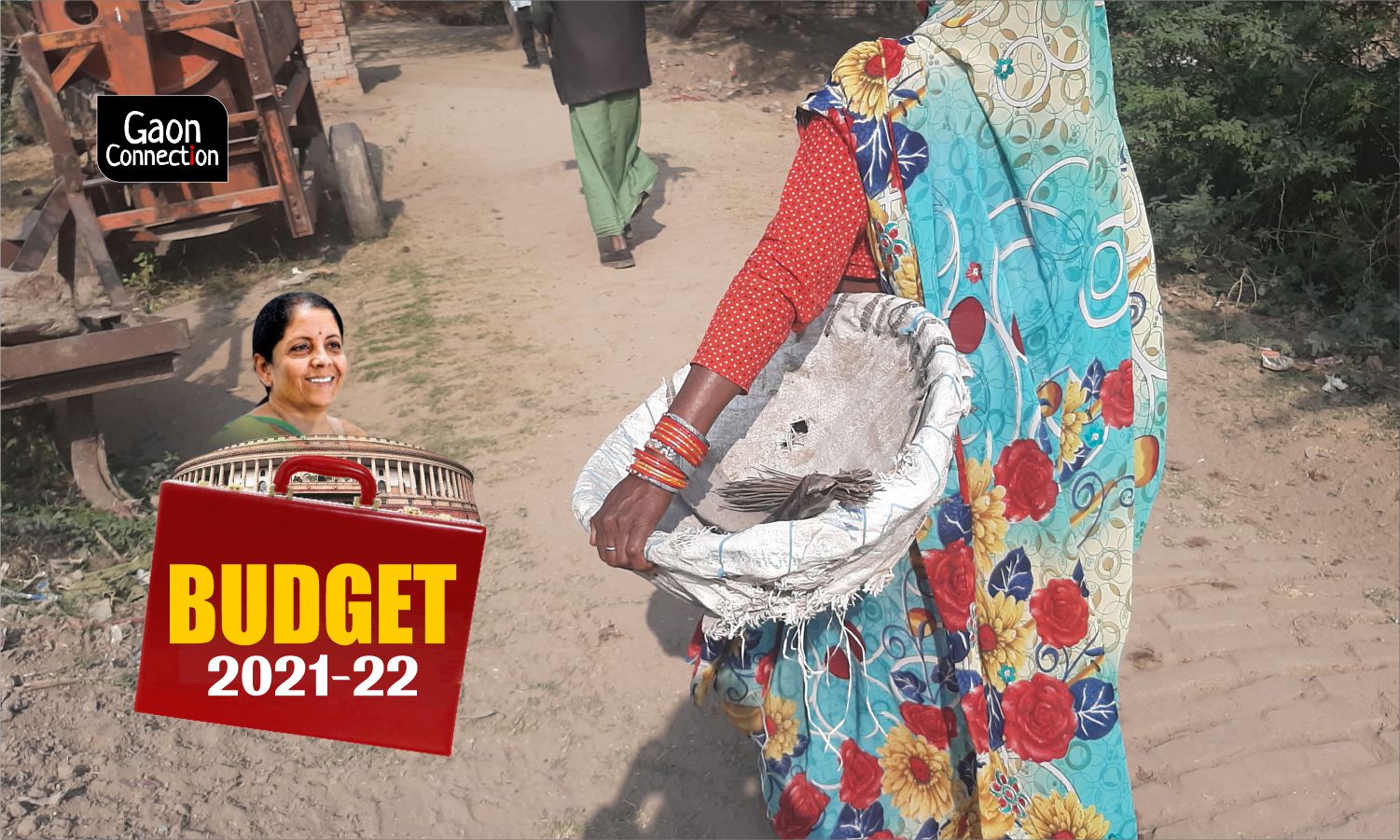In Union Budget 2021 presented by finance minister Nirmala Sitharaman, Rs 100 crore has been allocated for rehabilitation of those involved in manual scavenging. This may be higher than the revised allocation of Rs 30 crore for fiscal 2020-21 (original allocation Rs 110 crore), but is grossly inadequate considering the large number of people across the country who are still engaged in this, say activists.
“Though the government admits to the existence of manual scavengers, little is done for their rehabilitation. Budgetary allocations are inadequate, and even that is not spent. Plus, there is no accountability,” Kuldeep Kumar Baudh, convener of Bundelkhand Dalit Rights Forum, which works with manual scavengers, told Gaon Connection.
Replying to a question in the Lok Sabha on February 2, 2021, Ramdas Athawale, minister of state for social justice and empowerment, said that in the last five years till December 31 last year, 340 sanitation workers have died while cleaning sewers and septic tanks in 19 states.
The highest number of deaths — 52 — took place in Uttar Pradesh, while 43 died in Tamil Nadu, 36 in Delhi, 34 in Maharashtra, 31 in Gujarat and 24 in Karnataka.
Also Read: Women, backward classes and manual scavengers … they got their share too, in this Budget
The National Safai Karamchari Finance and Development Corporation (NSKFDC), an institution working under the ministry of social justice and empowerment, had conducted a survey in August 2019 among 170 districts in 18 states. Under this, 87,913 people had registered themselves as manual scavengers, but only 42,303 people — less than half — were recognised by state governments.
Delhi-based Ashok Tank, who works for the welfare of sewage workers, told Gaon Connection that the budget “has no provision of funds” to meet the demands of sewage workers and manual scavengers. “The prime minister honoured sanitation workers by cleaning their feet, but why did that honour not reflect in the budget?” he asked.
In view of the social exploitation and apathy these workers face, the current budget is “seriously unbecoming”, Tank said. “Do not forget that most sewage workers and manual scavengers belong to the scheduled castes,” he reminded.
As per the data of the National Safai Karamchari Finance and Development Corporation, till November 30 last year, 57,396 manual scavengers from 17 states have been provided the rehabilitation amount of Rs 40,000. Uttar Pradesh has the maximum beneficiaries — 32,028 people, followed by Maharashtra with 6,261, Uttarakhand with 4,968, Assam with 3,831 and Karnataka with 2,890 beneficiaries.
Gaon Connection also took up the issue of manual scavengers in December last year with its series: “Women Scavengers in Swachh Bharat” It showed that while many who received the compensation have left manual scavenging, they face a severe livelihood crisis.
People belonging to these communities are landless, have no other means of employment and their children have poor access to education due to untouchability.
According to the National Safai Karamchari Finance and Development Corporation, 41,068 people from 47 districts in Uttar Pradesh had registered themselves as manual scavengers, but the state government recognised only 19,712. This, when statistics say more than 19,000 women are still engaged in manual scavenging in Uttar Pradesh.
“During the pandemic, people from this community were responsible for sanitation and worked without caring for their lives, but could not receive timely payments because of the inadequate budget,” Bhaggu Lal Valmiki of Jalaun District, a member of the state-level monitoring committee for rehabilitation of manual scavengers, told Gaon Connection.
“Women who are doing manual scavenging are not being rehabilitated and those who have already given it up have not yet been linked to skill development training due to the lack of funds. This being the case, the budget cuts are beyond comprehension,” Valmiki said.


















